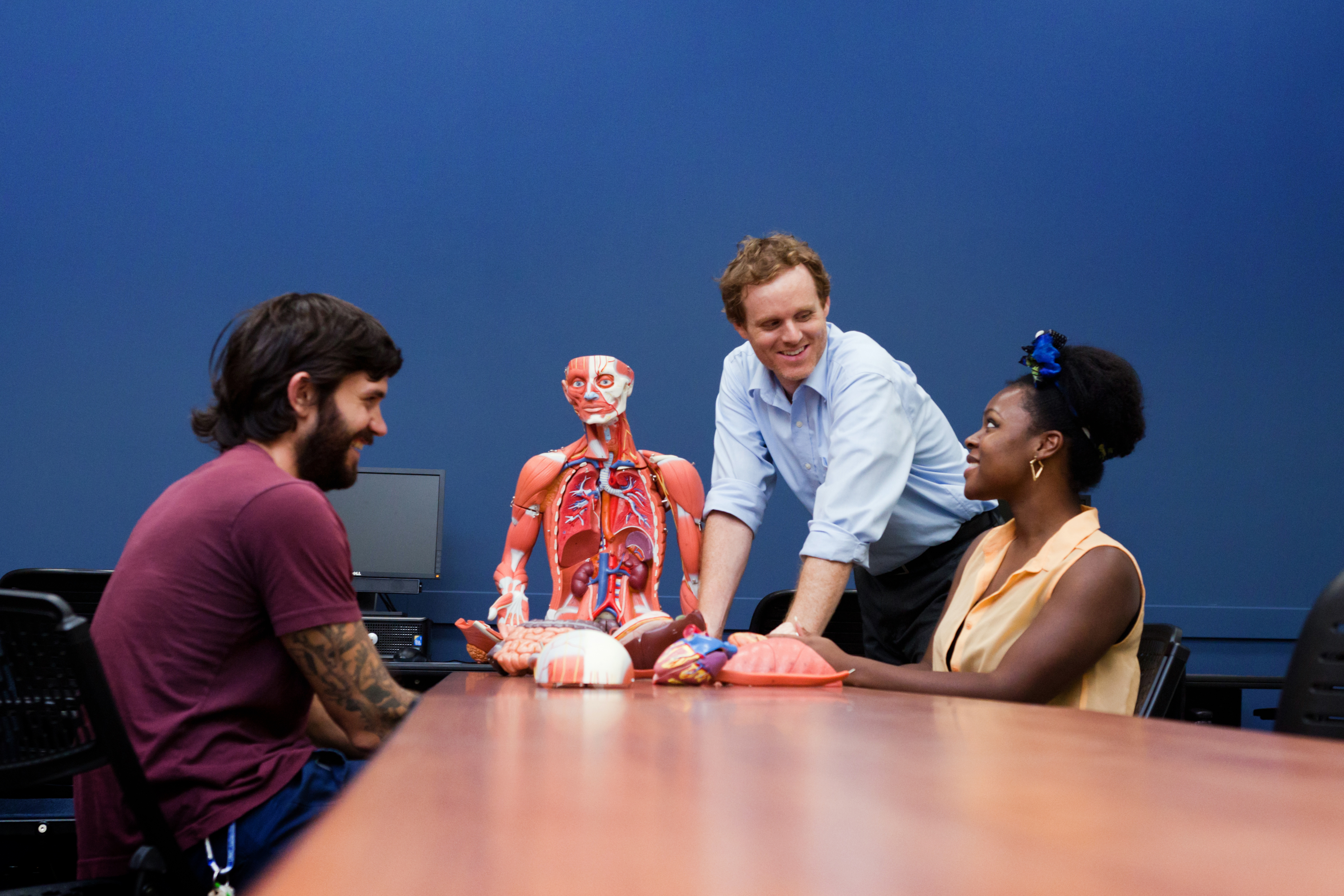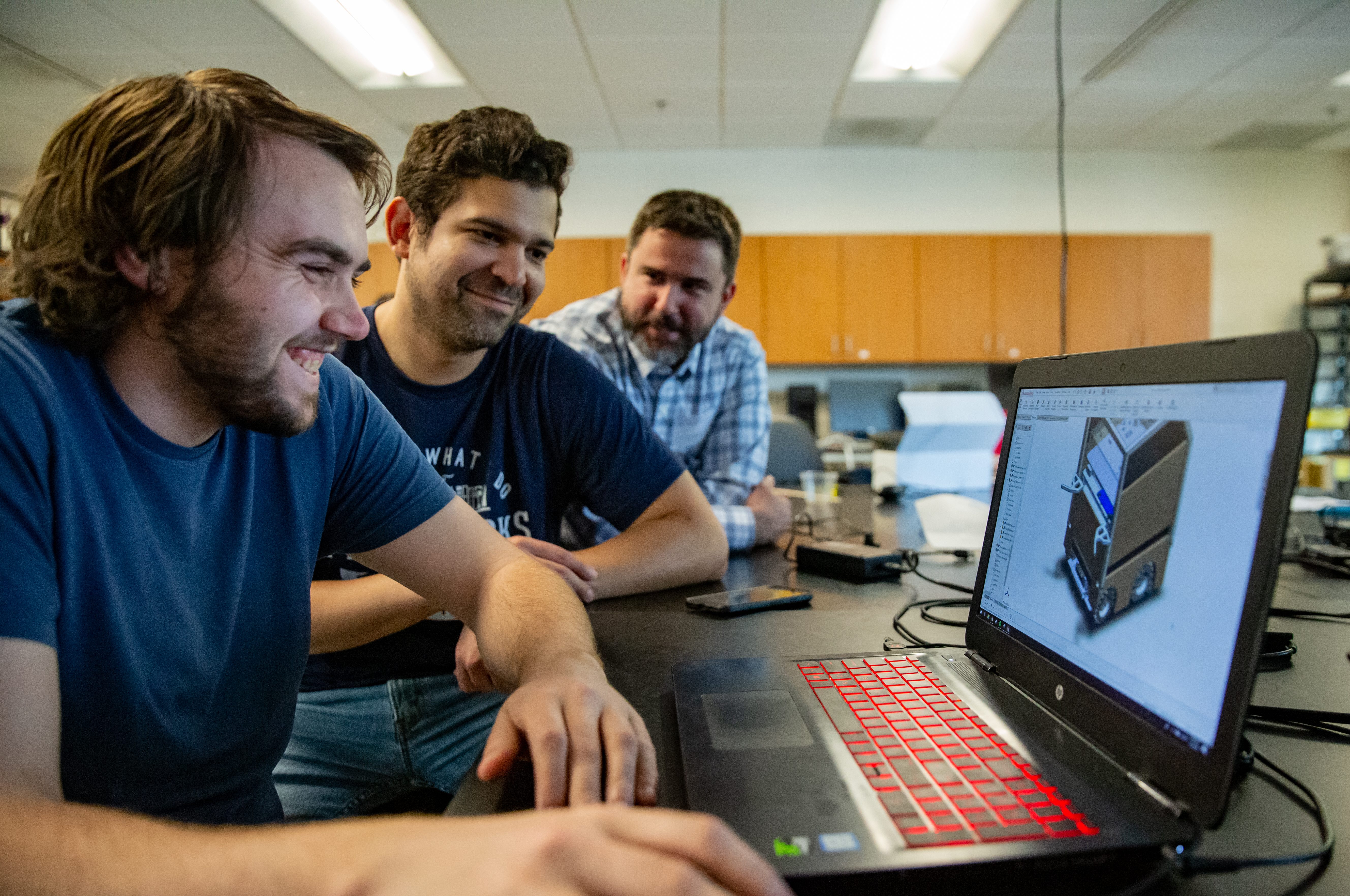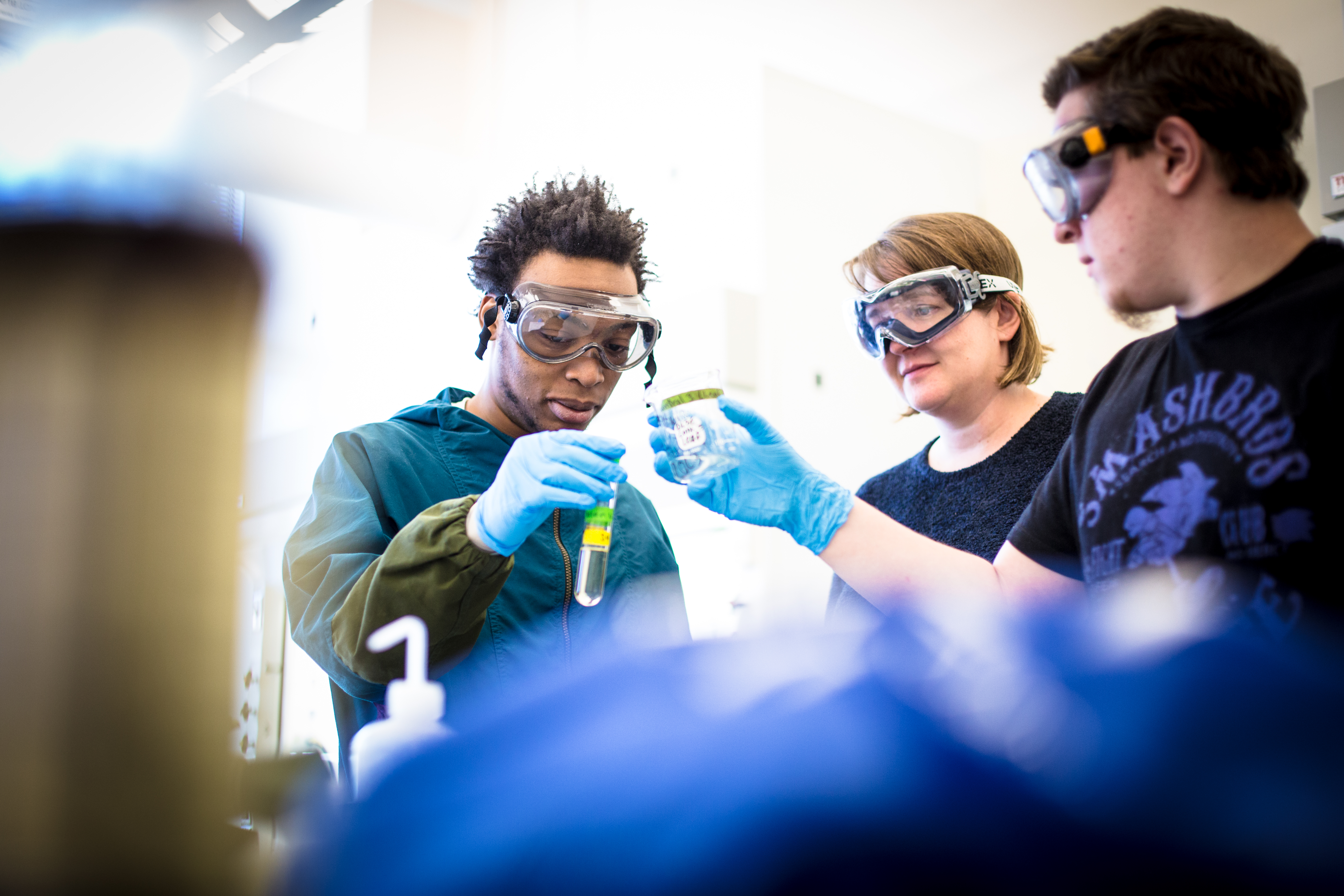Who We Are
With daily one-on-one guidance from full-time faculty members, UNC Asheville’s Department of Physics is a great place to study the laws that make the world go around, including time, space, force, matter, motion, and energy. Our faculty are passionate about their research in molecular, atomic, nuclear, and environmental physics, along with astronomy and astrophysics. Whether you’re hanging out in the physics study lounge or you’re a member of our award-winning chapter of the national physics honors society, Sigma Pi Sigma, it’s easy to feel at home in our close-knit department.
What You’ll Learn
Physics majors become expert critical thinkers. Along with gaining a strong knowledge base in mathematics, chemistry, computer science, astronomy, and fundamental engineering, you’ll test theories, conduct experiments, and solve problems—skills that apply to a broad range of fields. Physics majors are encouraged to customize their curriculum according to their interests and goals, and many participate in UNC Asheville’s nationally-recognized undergraduate research program. The astronomy minor is also popular; at UNC Asheville’s Lookout Observatory, astronomy faculty and students guide visitors as they explore the skies. Our graduates are prepared for graduate study or immediate, successful careers in science, engineering, medicine, law, business, education, and more.
Our Commitment to Diversity, Equity, and Inclusion
The Department of Physics and Astronomy at UNC Asheville believes that diverse perspectives and lived experiences enrich and strengthen both our educational and scientific work. Our faculty and staff aim to create an equitable, inclusive, and supportive environment for all. We acknowledge the underrepresentation of individuals from diverse groups in both the fields of physics and astronomy and that this underrepresentation is the result of systemic historical and ongoing bias in the culture at large, the academic community, and other professional organizations. We believe that it is our responsibility to actively help overcome these biases.









